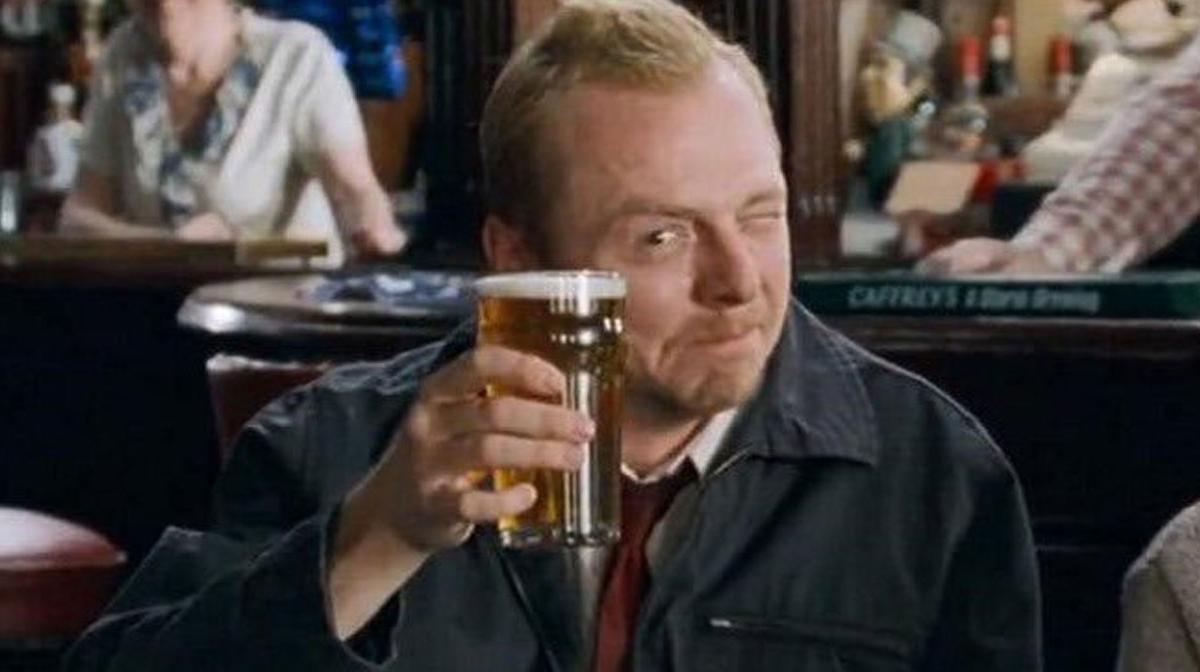
You don’t need us to remind you that it’s Friday.
And for your average hard-working ‘Strayan, that means one thing and one thing only: Time For A Tinnie™.

If you’ve spend the week sweating your dick off at gruelling F45 workouts finding sustenance in soul-crushing salads, the last thing you want to do is ruin your progress with a mammoth session on the plonk.
For this reason, ‘low-carb’ beers have become increasingly popular. But according to new research released today by the Cancer Council, low-carb beers are little more than marketing spin.
After analysing a massive amount of popular drinks, the council found beers marketed as low-carb don’t even have fewer carbs than beers that didn’t carry this message.
On average, a typical lager or ale has just 1.4 grams of carbohydrates per 100ml, while ‘low-carb’ Pure Blonde has just over 0.5 grams and ‘lower-carb’ Carlton Dry has 1.9 grams.
The idea that low-carb beer is good for you is a myth, says LiveLighter Campaign Manager and dietitian, Alison McAleese.
“Marketing certain beers as ‘low carb’ is doing nothing more than giving these beers a false healthy halo,” Ms McAleese says.
“Low-carb beer has only slightly fewer kilojoules than regular beer. They’re not healthy, and drinking them certainly won’t prevent weight gain.”
McAleese says most beers are already relatively low in carbohydrates, and it’s actually the alcohol, not carbs, making beer so high in kilojoules.
“Around 80% of the kilojoules in a typical beer come from the alcohol itself, while only around 15% come from carbohydrates, and less than 1% from sugar,” Ms McAleese said.

“At the end of the day it’s the alcohol in beer, not the carbohydrates, that does the damage to your waistline and puts you at greater risks of serious health problems, including cancer.
“To avoid weight gain and reduce these risks, choose lower alcohol beer and cut back,” She said.
LiveLighter, along with Cancer Council Victoria, is calling on the Federal Government to make nutrition labelling mandatory on all alcohol products, just as it is on other food and beverages.
Did you know the average espresso martini packs 284 calories? Probably not, because it’s not widely advertised.
“It’s not surprising people are confused about the health effects of beer,” Ms McAleese says.
If you thought you were doing your rig a solid by reaching for the low-carb alternative, you’re not alone. More than one in three men (35%) incorrectly think low-carb beer is healthy, according to the new data.
One in five (22%) women also mistakenly think low-carb beer is a healthy option, according to the survey of more than 1000 Victorians.
“Alcohol brands aren’t required to disclose kilojoule content and nutrition information, so consumers are far more likely to be duped into thinking beer is healthy by sneaky marketing messages like ‘low carb’.
“If kilojoule reduction is the goal, people are better off choosing lower alcohol beer or, better yet, cutting back on the amount of alcohol they are drinking.”
Alcohol of any type is not at all healthy, agreed Cancer Council Victoria Head of Prevention, Craig Sinclair.
“The unwanted weight gain from the empty kilojoules in beer can lead to obesity, which increases the risk of 13 types of cancer, type 2 diabetes, heart and kidney disease, and stroke,” Mr Sinclair said.
“But it gets worse. Alcohol is also a known cause of cancer and has been recognised by the World Health Organization as a Group 1 carcinogen –the highest classification available.
“The more alcohol you drink, the greater your risk of cancer and that is why we recommend to those people who choose to drink to stick to the National Health and Medical Research Council (NHMRC) Guidelines.”
Realistically, we know it’s unlikely you’ll give up the turps for good, but the research is a timely reminder than alcohol genuinely is a poison, and cutting back every now and then isn’t a bad idea.



